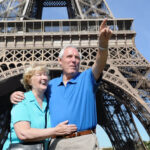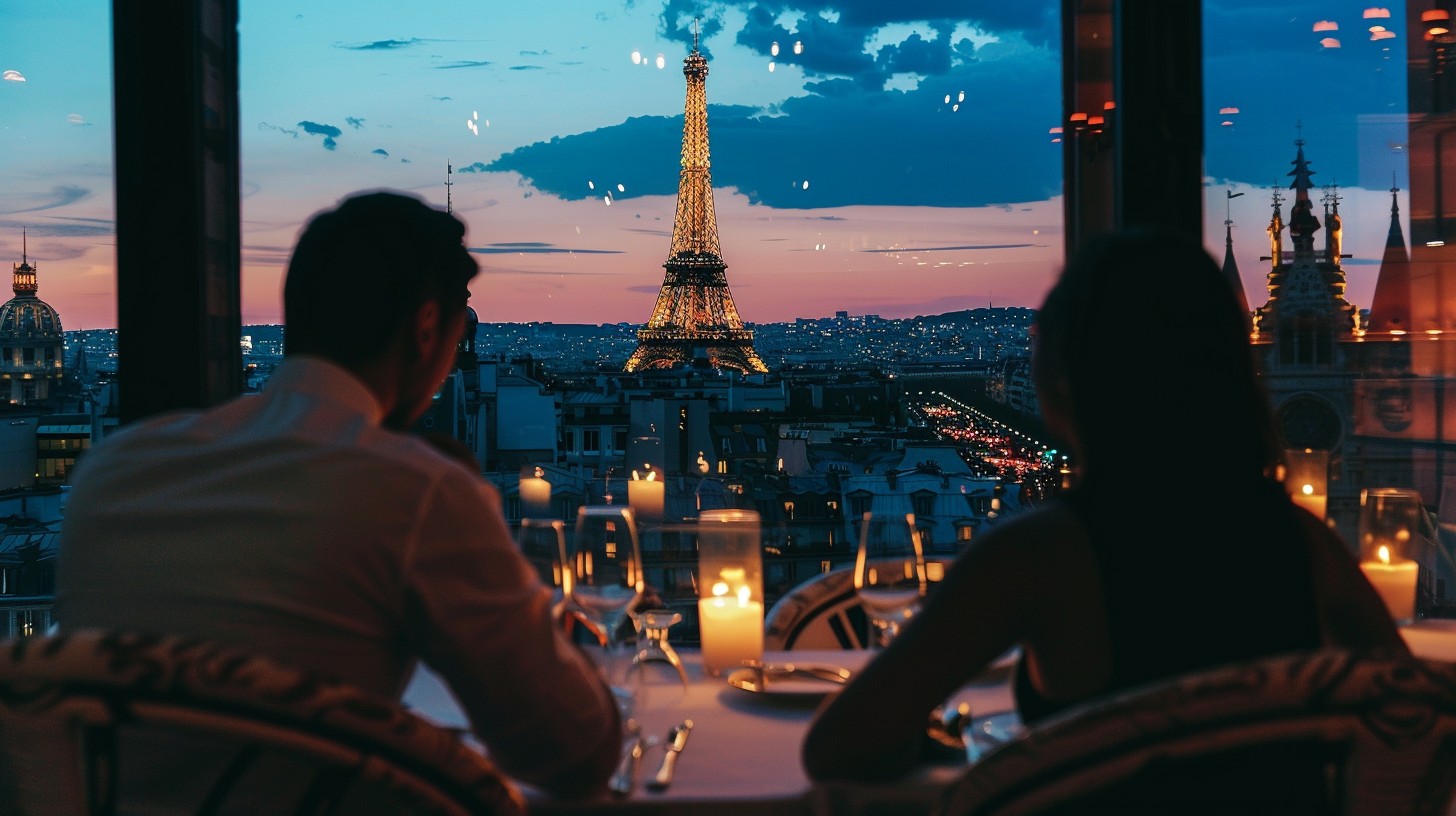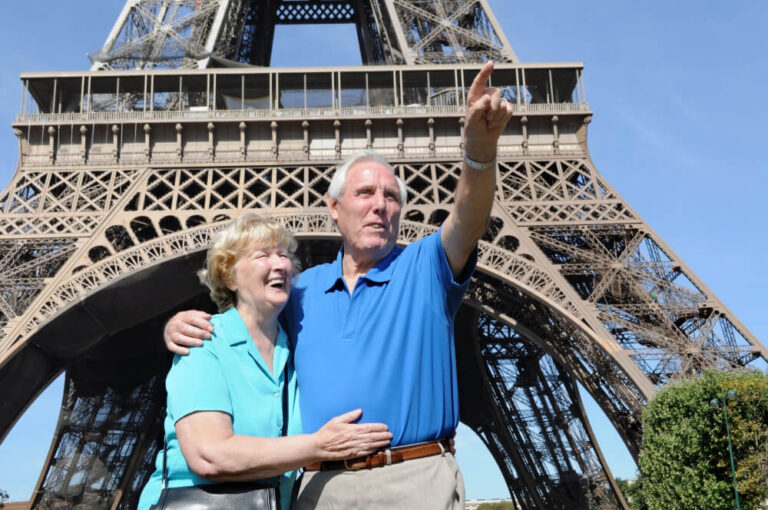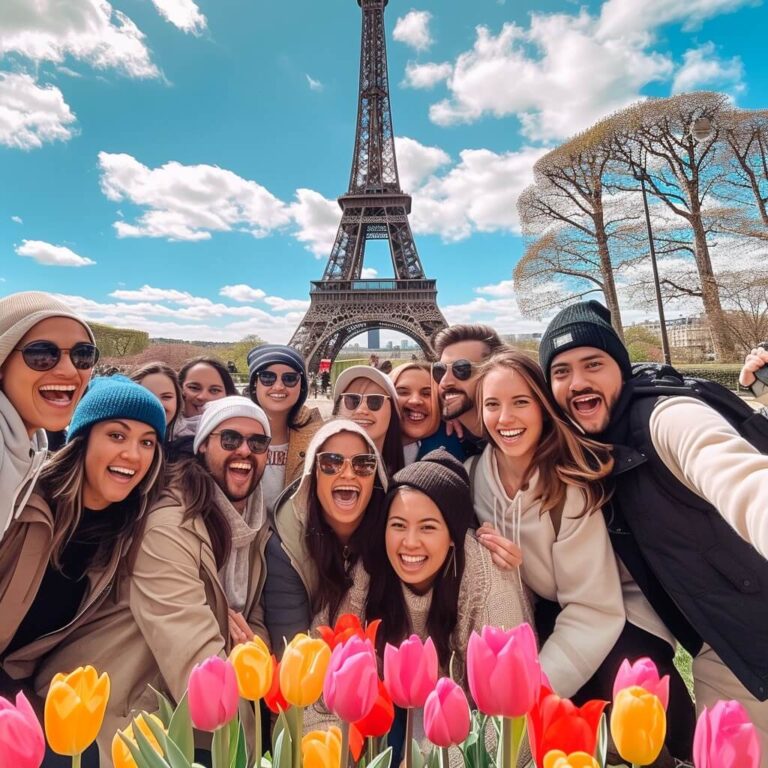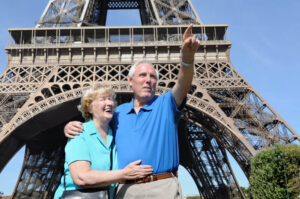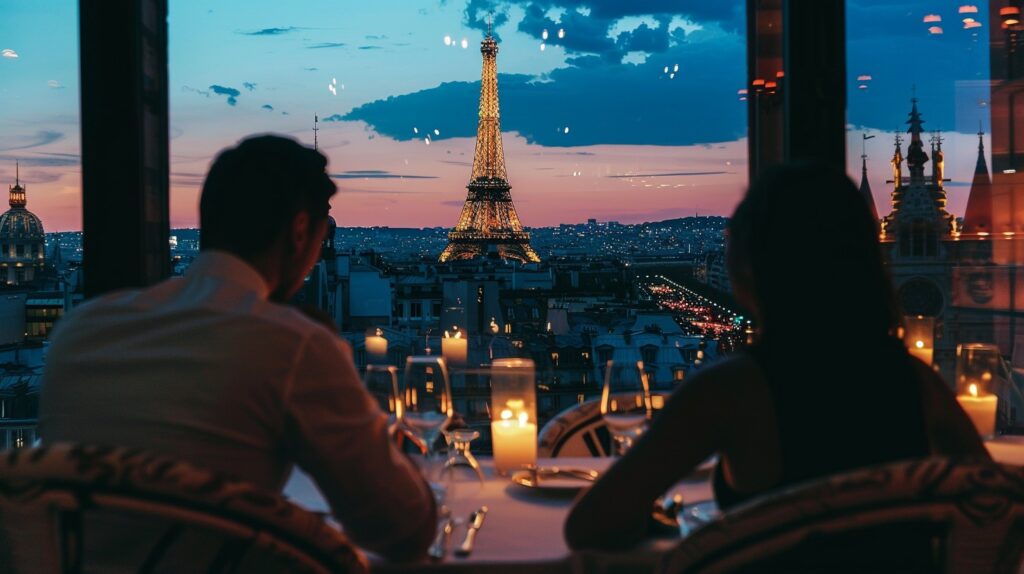
Plan Paris Vacation, often called the City of Light, is a dream destination for many travelers. From its iconic landmarks to its charming neighborhoods, there’s something for everyone in this vibrant city.
Whether you’re planning your first visit or returning for another adventure, this comprehensive guide will help you navigate the ins and outs of planning a memorable vacation to Paris.
When is the Best Time to Visit Paris?
Understanding Paris’s Seasons
Choosing the right time to visit Paris can significantly impact your experience.
Each season offers a unique way to experience the city:
- Spring (March to May): Spring is a magical time in Paris. The city’s gardens, like the Jardin des Tuileries and Luxembourg Gardens, burst into color with blooming flowers. Temperatures are mild, making it perfect for outdoor sightseeing. However, it can be quite busy, especially around Easter.
- Summer (June to August): Summer in Paris is lively, with numerous festivals, outdoor concerts, and events. It’s also the peak tourist season, so expect larger crowds and higher prices for accommodations. The weather can be warm, reaching into the 80s°F (27°C), so be prepared for heat and occasional summer showers.
- Fall (September to November): Fall is an excellent time to visit if you prefer fewer tourists and cooler weather. The city’s parks are adorned with fall foliage, and you can enjoy wine harvest festivals. The temperatures are comfortable, ranging from the 50s to 60s°F (10-20°C).
- Winter (December to February): Winter in Paris is enchanting with its festive lights and holiday decorations. Although it can be cold and rainy, the city’s Christmas markets and winter sales make it a great time to visit. Just pack warm clothes and prepare for shorter daylight hours.
Personal Tip: I visited Paris in late April, and the spring weather was perfect for exploring the city’s outdoor attractions. The blooming flowers in the gardens were a delightful bonus!
How to Choose the Right Accommodations
Types of Accommodations
Finding the right place to stay is crucial for a comfortable trip.
Here are the main options:
- Hotels: Paris offers a wide range of hotels, from luxury five-star establishments to budget-friendly options. If you’re looking for convenience, choose a hotel near major attractions like the Eiffel Tower or the Louvre. The Latin Quarter and Le Marais are also great areas with plenty of dining and shopping options.
- Vacation Rentals: Renting an apartment or house can provide a more authentic Parisian experience. It’s especially beneficial for families or groups who need extra space and prefer cooking their own meals. Websites like Airbnb and Vrbo offer various options throughout the city.
- Hostels: Ideal for budget travelers and those seeking a social atmosphere. Paris has several hostels that offer affordable rates and often include breakfast. Hostels are a great way to meet fellow travelers and share experiences.
- Boutique Hotels: For a unique and charming stay, consider boutique hotels. These often feature personalized service and distinctive decor, providing a more intimate experience compared to larger chain hotels.
Personal Tip: On my last trip, I opted for a vacation rental in the Le Marais district. It was a charming apartment with a small balcony, perfect for enjoying a morning coffee while watching the city wake up.
What to Pack for Paris
Essentials to Bring
Packing smartly can enhance your trip and ensure you’re prepared for Parisian weather.
Here’s a checklist of essentials:
- Comfortable Shoes: Paris is best explored on foot, so bring comfortable walking shoes. A pair of stylish yet practical shoes will keep you comfortable while strolling through the city’s many neighborhoods and landmarks.
- Weather-Appropriate Clothing: Check the weather forecast before you pack. Paris can be unpredictable, so layer your clothing. In spring and fall, a light jacket and sweater are often necessary. Summer calls for light, breathable fabrics, while winter requires warmer clothing.
- Adapter for Electronics: France uses Type C and E plugs, so bring an adapter if your electronics use a different plug type. A universal adapter can be a lifesaver for international travelers.
- Reusable Water Bottle: Stay hydrated while exploring the city. Paris has plenty of public drinking fountains where you can refill your bottle.
Personal Tip: I always pack a foldable tote bag for shopping and carrying essentials during the day. It’s handy for picking up groceries or souvenirs without adding bulk to my luggage.
Must-See Attractions and Activities
Top Attractions
Plan Paris Vacation is brimming with iconic sights and hidden gems. Here’s a list of must-see attractions:
- Eiffel Tower: No visit to Plan Paris Vacation is complete without seeing the Eiffel Tower. Whether you choose to take the elevator or climb the stairs to the top, the views are breathtaking. Consider booking your tickets in advance to avoid long queues.
- Louvre Museum: Home to the Mona Lisa, the Louvre is one of the world’s largest and most visited museums. Spend a few hours exploring its vast collection of art and historical artifacts. The museum is located in the Palais du Louvre, a historic royal palace.
- Notre-Dame Cathedral: Although it’s currently under restoration following the fire in 2019, Notre-Dame remains a significant landmark. Visit the surrounding area to admire the cathedral’s stunning facade and enjoy the nearby Ile de la Cité.
- Champs-Elysees and Arc de Triomphe: Walk down the famous Champs-Élysées avenue, lined with shops and cafés, and visit the Arc de Triomphe. Climb to the top for panoramic views of Paris.
- Montmartre and Sacré-Cœur Basilica: Explore the artistic neighborhood of Montmartre, known for its bohemian vibe and historic artists. Visit the Sacré-Cœur Basilica for stunning views of the city and enjoy the lively Place du Tertre, where artists display their work.
Local Favorites
For a more authentic experience, consider exploring these local favorites:
- Le Marais: This historic district is known for its trendy boutiques, cafes, and vibrant atmosphere. Visit the Musée Carnavalet to learn about Paris’s history or enjoy a leisurely stroll through the picturesque streets.
- Canal Saint-Martin: A charming area known for its picturesque canal, trendy boutiques, and laid-back cafes. It’s a great place for a relaxed afternoon stroll or a picnic by the water.
- Latin Quarter: Home to the Sorbonne University, this area is lively and full of history. Explore the narrow streets, visit the Panthéon, and enjoy a meal at one of the traditional bistros.
Personal Tip: Try to visit some lesser-known attractions as well. The Musée de l’Orangerie, which houses Monet’s Water Lilies, and the Musée d’Orsay, known for its Impressionist collection, are both worth a visit.

Navigating the City
Getting Around Paris
Paris has an extensive public transportation system, making it easy to get around:
- Metro: The Paris Metro is efficient and covers most of the city. It’s the fastest way to travel between major attractions. Purchase a Paris Visite Pass for unlimited travel on the Metro, buses, and RER trains within certain zones.
- Buses: Paris buses are another option for getting around. They offer a different perspective of the city and can be a more scenic alternative to the Metro.
- Walking or Biking: Paris is a very walkable city, and many of the major attractions are within walking distance of each other. Renting a bike is also a great way to explore. The city has numerous bike rental stations and dedicated bike lanes.
- Taxis and Ride-Sharing: Taxis and ride-sharing services like Uber are available throughout the city. They can be convenient for reaching destinations that are farther apart or during late hours.
Personal Tip: Download a navigation app that works offline to help you find your way around the city without needing constant internet access. Google Maps and Citymapper are both excellent choices.
Dining and Shopping
Dining Recommendations
Paris is a food lover’s paradise with a diverse range of dining options:
- Classic French Cafés and Bistros: Enjoy traditional French dishes such as croissants, quiches, and coq au vin. Cafés like Café de Flore and Les Deux Magots are famous for their historic charm and delicious food.
- Bakeries: Paris is renowned for its bakeries. Don’t miss trying freshly baked pastries, such as croissants, éclairs, and macarons. Visit local bakeries like Poilâne and Pierre Hermé for an authentic experience.
- Markets: Explore markets like Marché des Enfants Rouges for fresh produce, artisanal cheeses, and local delicacies. It’s a great way to experience Parisian food culture and pick up ingredients for a picnic.
- Fine Dining: For a special occasion, consider dining at one of Paris’s Michelin-starred restaurants. Places like Le Jules Verne in the Eiffel Tower or L’Arpège offer exquisite cuisine and an unforgettable dining experience.
Shopping Tips
Paris is also a shopper’s haven, from luxury boutiques to charming local shops:
- Champs-Élysées: Known for its high-end stores and flagship shops. It’s perfect for luxury shopping and finding designer brands.
- Le Marais: A trendy district with boutique stores, vintage shops, and unique finds. It’s a great area for discovering new fashion and unique items.
- Galeries Lafayette: A famous department store with a stunning glass dome and a wide range of fashion, beauty products, and gourmet food.
Personal Tip: Visit local markets and shops to find unique souvenirs and gifts. The Marché Bastille and the Rue Cler market are excellent spots for picking up food items and artisanal products.
Final Tips for Your Paris Vacation
Preparing for Your Trip
- Learn Basic French Phrases: While many Parisians speak English, learning a few basic French phrases can enhance your experience and show respect for the local culture. Phrases like “Bonjour” (Good day) and “Merci” (Thank you) go a long way.
- Plan Your Itinerary: Prioritize the attractions you want to see but also leave some time for spontaneous adventures. Paris is full of surprises, and sometimes the best experiences come from exploring without a strict plan.
- Stay Safe and Be Aware: Keep an eye on your belongings and be cautious of pickpockets, especially in crowded areas and on public transport. Follow local advice and be aware of your surroundings.
Conclusion
Plan Paris Vacation can be an exciting journey in itself. With a bit of preparation and these tips, you’ll be well on your way to enjoying everything this incredible city has to offer.
From iconic landmarks and charming neighborhoods to delicious food and unique shopping experiences, Paris truly has something for everyone.
Bon voyage and enjoy your adventure in the City of Light!
Frequently Asked Questions
What is the best time to Plan Paris Vacation?
The best time to visit Paris varies by preference. Spring (March to May) and autumn (September to November) are often recommended for pleasant weather and fewer crowds.
Summer (June to August) is lively with festivals but can be crowded, while winter (December to February) offers a quieter experience with festive decorations, though the weather can be cold and rainy.
How should I prepare for my trip?
Preparation involves several steps: checking passport validity, notifying your bank about travel plans, brushing up on basic French phrases, and creating a detailed itinerary.
It’s also advisable to book main attractions in advance to avoid long lines and ensure availability.
Where should I stay in Plan Paris Vacation?
Choosing accommodation depends on your trip type. Paris is divided into 20 arrondissements, each offering unique experiences.
Popular areas for tourists include the 1st (Louvre), 4th (Marais), and 7th (Eiffel Tower).
Consider your itinerary when selecting a location, as it can significantly impact your experience.
How can I get around the city?
The Paris Metro is an efficient way to navigate the city, complemented by buses and trams.
Walking is also highly recommended, as many attractions are within walking distance of each other. For convenience, consider purchasing a day pass for public transport.
What should I pack for my trip?
Pack lightly and consider layering outfits to accommodate varying weather conditions.
Comfortable shoes are essential for walking around the city. Additionally, bring a small bag for daily excursions and ensure you have any necessary adapters for electronic devices.
